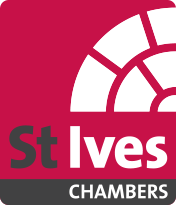Navigating a minefield: adoption applications and conditional adoption orders by Matthew Maynard
Re W [2015] EWCA Civ 403 [FLR awaited] is required reading for public law practitioners, who may require some assistance in navigating the often tricky area of applications to revoke placement orders, or applications for adoption orders and leave to oppose adoption.
Facts
In the space available, it would be impossible to accurately summarise the facts of this complex case, and reading the full judgment is recommended. However, for present purposes it is sufficient to say that the parents were the parents of five children, who had previously been the subject of care proceedings. Final care orders were made in relation to the three oldest children, and final care and placement orders in relation to the youngest two. The prospective adopters applied for adoption orders, following the placement of the children. The parents applied for leave to oppose those applications.
All practitioners will be familiar with the authority of Re B-S (Children) (Adoption Order: Leave to Oppose) [2013] EWCA Civ 1146 and the influence that it has had on public law proceedings. However, the authority actually relates to an application for leave to oppose the making of an adoption order, and clearly highlights the two-stage test that the court must apply. Stage one is to establish if there has been a change in circumstances. If, and only if there has been such a change, will the court move to consider stage two, which is a welfare analysis, within the meaning of the 2002 Act.
Key guidance from Re W
- The “chance of circumstances” required in order to satisfy stage one of the test need not be limited to change in respect of the parents themselves. It can relate to other factors, external to the parents.
- The late emergence of a kinship carer established a “change of circumstances” within the meaning of section 47 ACA 2002. For a further decision in similar circumstances, the very recent (handed down on 22 June 2015) judgment of Baker J in Re L-G (A Child) [2015] EWFC 52 is worthy of consideration.
- Whilst it was not inappropriate to conduct “rolled-up hearings” (applications for leave to oppose, together with applications for adoption) the phrase “birth-parent adoption hearing” was confusing and unhelpful, and best avoided unless the court documentation specifically detailed what that hearing entailed.
- It was not lawful for a court to make an adoption order subject to a condition precedent. In other words, the court does not have the power to make adoption order which is conditional on another act occurring. In this case, the court at first instance purported to make an adoption order conditional on the child first being circumcised. This was not lawful.
- Similarly, it was not lawful for a court to make a “suspended” adoption order. In the present case, the court purported to make an adoption order to be implemented in seven days time, from the date of the order. This was not lawful.
- The common practice of local authorities serving documents and assessments with no date or signature was heavily criticised by the President.
Matthew Maynard appeared for the appellant father in Re W, led by Janet Bazely QC.





